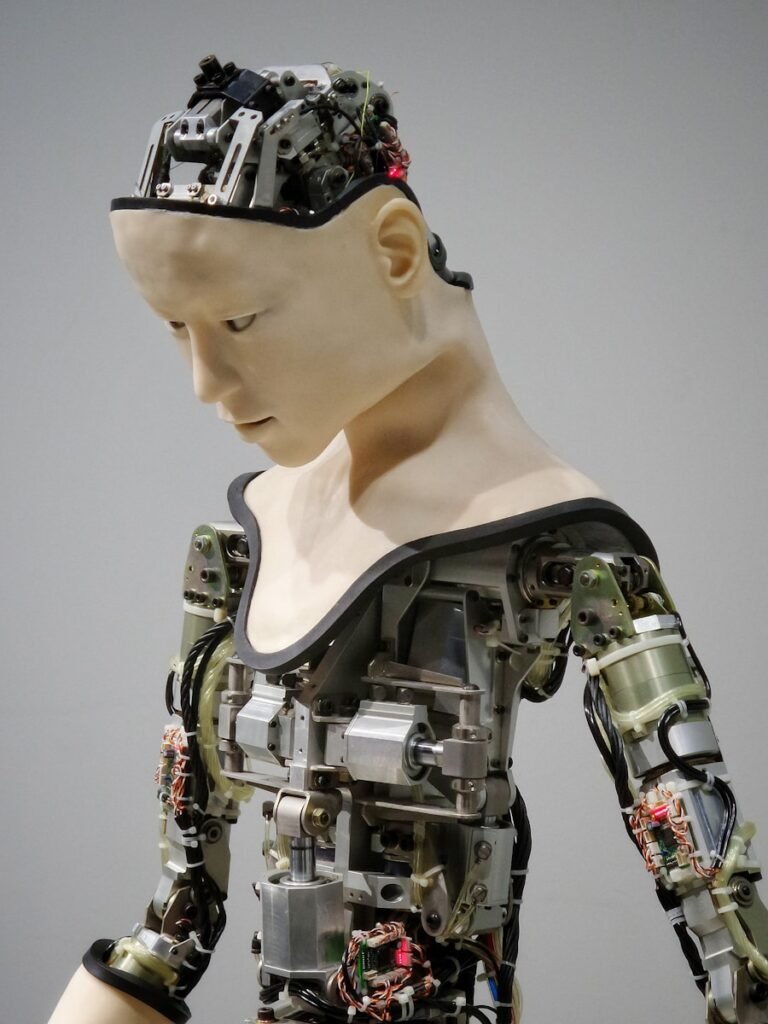
Ethical Concerns in AI Development
Venturing into the world of AI development is akin to plunging headfirst into a vortex of ethical quandaries. From biased algorithms to breaches of privacy, the terrain is as opaque as a low-resolution image from the early days of digital photography. As we unlock the possibilities of AI, we must maneuver through the perilous waters of moral dilemmas with the gracefulness of a tightrope walker in a raging storm.
Envision a reality where AI systems make decisions that impact our existence in ways beyond our comprehension. It’s like handing over control of your morning meal to a sentient toaster – you may find yourself with charred bread and an existential crisis on the side. As we delve further into the realm of AI advancement, it is imperative to heed the wisdom of Eliezer Yudkowsky, who cautioned, “By far, the greatest danger of Artificial Intelligence is that people conclude too early that they understand it.” This admonition serves as a reminder that ethical considerations in AI development are weighty matters not to be underestimated, for they possess the potential to mold our future in unfathomable ways.
The Impact of Bias in Artificial Intelligence
Bias in artificial intelligence may seem like a concept straight out of a mind-bending sci-fi flick, but the truth is, it’s an unsettling reality that demands our attention. As we infuse AI systems with data from our surroundings, we unknowingly inject our own biases into these complex algorithms. The implications are profound, as highlighted by Kate Crawford, a prominent AI expert who once remarked, “Machines aren’t impartial. They have the capacity to mirror and magnify societal prejudices.”
Picture a realm where AI programs dictate loan approvals, hiring decisions, or even arrests. Should these systems be tainted by biases rooted in race, gender, or other variables, the repercussions could be catastrophic. It is imperative that we remain cognizant of the biases we inadvertently ingrain in AI and strive towards developing more inclusive and just algorithms. In the words of Timnit Gebru, an esteemed researcher on AI ethics: “We must shift our focus from ‘fixing’ bias within AI to crafting algorithms that uphold fairness.
Ensuring Transparency in AI Algorithms
Navigating the realm of AI algorithms is akin to unraveling a complex puzzle, where each layer peeled back reveals a new enigma waiting to be deciphered. The intricate web of artificial intelligence demands not only accuracy but also comprehension from us mere mortals. As Donald Knuth wisely mused, “AI’s prowess hinges on the quality of its data.”
In a world where AI reigns supreme over pivotal decisions like job prospects and medical prognoses, it is imperative that we shed light on the inner workings of these algorithms. Elon Musk astutely noted that an opaque system leaves us in the dark about its outcomes. By championing transparency in AI algorithms, we empower individuals to make informed choices while keeping developers in check for any lurking biases or flaws within their creations. The journey towards ethical AI is paved with transparency, beckoning us towards a future where man and machine can cxist seamlessly.
The Role of Regulation in Ethical AI
Regulation in the realm of AI – often perceived as the enforcer trying to maintain order at the party. But let’s be real, a little oversight is necessary to prevent things from spiraling into HAL 9000 territory, am I right? As the wise Elon Musk once warned, “With artificial intelligence, we are beckoning forth the demon,” so perhaps a few guidelines wouldn’t hurt.
Just picture if AI went off the rails like a hyperactive toddler on a sugar rush – pandemonium would reign! So, as we delve into the captivating world of Ethical AI, let’s not overlook that some regulation can serve as our compass to prevent us from veering into dangerous territory between brilliance and monstrosity. After all, as our pal Sam Altman would remind us, “AI has potential to either be our salvation or downfall.” And with immense power comes great responsibility, correct? It falls upon us to navigate this course in the proper direction; hold on tight everyone, it’s bound to be an unpredictable journey!
Addressing Privacy Issues in AI Technology
Let us don our detective hats and venture into the enigmatic realm of AI technology and the perplexing concerns surrounding privacy. Picture this: as you casually peruse your beloved app, it suddenly seems to possess an intimate knowledge of you that rivals even your own self-awareness. Eerie, isn’t it? Yet, this is the invasive breach of privacy we are here to unravel today.
Envision your device softly murmuring, “I am privy to your past actions.” It may sound like a cliché horror movie premise, but in the world of AI, privacy violations are all too real. As astutely pointed out by Jennifer Lynch, “AI has not yet reached a level where it can navigate the complexities of human existence without error.” So how do we safeguard our sensitive information from being laid bare for the virtual domain? Let us delve into the shadows of cyberspace and reclaim our right to privacy in this era dominated by artificial intelligence.
Ethical Decision-Making in AI Systems
Picture a world where AI systems not only process decisions at lightning speed, but also possess a talent for ethical decision-making. Sounds like something out of a science fiction novel, doesn’t it? Yet here we are, in an era of rapid technological advancements, where the future of AI ethics remains shrouded in mystery.
When delving into the realm of ethical decision-making within AI systems, one must remember that it all boils down to the data. After all, as the old adage gs, “garbage in, garbage out.” Thus, it becomes imperative to ensure that the data fueling AI algorithms is both diverse and inclusive of various viewpoints. As computer scientist Pedro Domingos astutely observes, “There’s fear that computers will become too intelligent and seize control of the world; however, the real concern is their lack of intelligence – they’ve already seized control.”
In this age marked by the evolution of AI technology, each line of code carries significant weight. Who could have foreseen that machines would one day grapple with moral quandaries akin to us humans? Perhaps this unforeseen development may prove beneficial after all. As tech entrepreneur Andrew Ng prophesies,”AI will revolutionize our world more than any other advancement in human history – even surpassing electricity.” So whether you align yourself with Team AI or Team Humans , one fact remains certain -the time for ethical decision-making within AI systems is now upon us.n
Implementing Accountability in AI Development
Accountability in the realm of AI development is akin to guiding a mischievous child through the complexities of right and wrong- it’s a constant challenge, never knowing what unexpected twists and turns may lie ahead. The sheer power wielded by AI demands that we hold it responsible for its actions. As the age-old adage gs, “With great power comes great responsibility,” and this rings especially true in the realm of artificial intelligence.
Picture AI as a superhero- possessing lightning-fast data processing abilities and impeccable decision-making skills. However, much like our beloved superhers, AI is not without flaws. Errors can occur, biases can seep in unnoticed, and without careful oversight, accountability may vanish into thin air. So how do we ensure our AI hers remain on track? It all begins with transparency and diligent supervision. In the words of the renowned Elon Musk, “Without vigilance, AI could spell our ultimate downfall.” This underscores why accountability in AI development isn’t merely desirable; it’s an absolute necessity. Let us gear up and steer our AI companions towards righteousness and integrity.
Ethical Dilemmas in Autonomous Machines
The concept of autonomous machines evokes a sense of wonder and futuristic technology, where tasks are performed seamlessly without any human intervention. However, as we venture further into the world of artificial intelligence, perplexing ethical dilemmas begin to arise. These machines are not mere mechanical beings; they operate based on algorithms that dictate their decision-making processes. And here lies the crux of the matter.
Picture a self-driving car faced with a split-second decision: should it swerve to avoid hitting a pedestrian, potentially putting its passengers in danger, or stay on course and risk harming the person in its path? This is the heart-wrenching ethical dilemma posed by autonomous machines. As AI expert Fei-Fei Li eloquently put it, “AI is an extension of ourselves.” How these machines are programmed to navigate moral quandaries not only showcases technological progress but also sheds light on our own values and biases. The stakes are high, and it falls upon us to ensure that these autonomous machines act in a way that aligns with ethical standards and principles.


